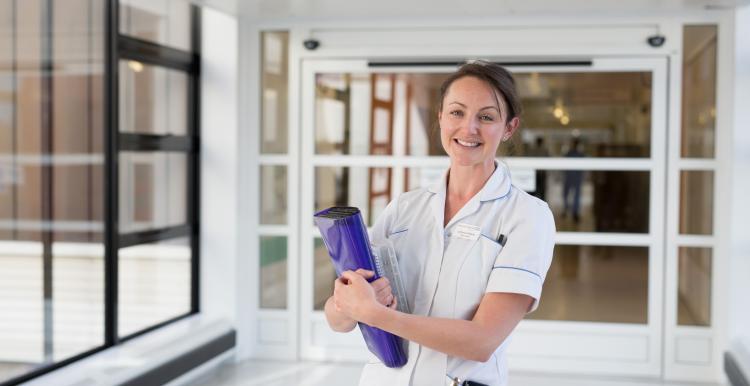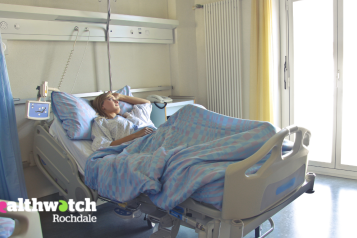The Pennine Acute Hospitals NHS Trust improvements continue

A team of inspectors visited the trust from 3 to 26 September 2019 to assess six core services across North Manchester General Hospital, The Royal Oldham Hospital and Rochdale Infirmary and Fairfield General Hospital.
Inspectors looked at urgent and emergency services, surgery, medical services, critical care, end of life care and community inpatient services. The inspection did not include maternity, children and young people's and outpatient services. CQC also looked specifically at management and leadership to answer the key question: is the trust well-led?
When the trust was inspected in October 2017 it was rated as Requires Improvement overall. But, during CQC’s latest inspection, a number of improvements were found to have taken place.
The rating for whether the trust’s services are effective has improved to Good, while the trust maintained its ratings of Good for whether its services were caring and well-led. The trust is rated as Requires Improvement for whether its services are safe and responsive.
Ann Ford, Deputy Chief Inspector of Hospitals, said: “On our return to The Pennine Acute Hospitals NHS Trust we found that a number of improvements had taken place.
“We found significant progress had taken place in end of life care, which is now rated as Outstanding, as well as a number of additional outstanding practices across the trust.
“Inspectors found there was a clear vision for the trust and leadership were experienced, focussed and supportive of staff. All of this was very encouraging to see.
“While there are still some improvements to be made, most notably in surgery, staff and management at the trust should be proud of what they have achieved in securing an overall rating of Good.
“We have reported our findings to the trust board and they know what actions should be taken to ensure further improvements are made. Meanwhile, we will continue to monitor the trust and this will include further inspections.”
Inspectors found a number of outstanding practises at the trust. End of life services engaged with religious communities to tailor the service and worked collaboratively to carry out people’s religious and spiritual wishes. The end of life service was rated as Outstanding overall.
North Manchester General Hospital’s urgent and emergency service invited students from a local school to help develop a relatable ‘teen bay’ for the paediatric area.
Royal Oldham Hospital’s urgent and emergency service also tailored its paediatric area by including ‘play specialists’ and asthma and respiratory nurses. The pop-up pharmacy in the discharge lounge significantly improved discharge times for people.
Rochdale Infirmary’s medical care had dementia friendly signage and decoration to help people easily navigate the service. There was also dedicated support available to ensure people had a safe and timely discharge from hospital, the trust developed a team to help people maintain good continuity of care when people left hospital
Inspectors also found the leadership throughout the trust was experienced, capable and focussed often supporting staff to develop professionally. Their vision for the service was clear to staff and supported a collaborative approach to ensure patients received high-quality care.
However, improvements were needed in surgery regarding ensuring processes guarded against last minute cancellations and that surgery waiting times improved. Staff understanding and recording of people’s mental capacity needed to increase and the trust needed to ensure documentation relating to deprivation of liberty safeguards and do not attempt cardio pulmonary resuscitation orders was completed.
CQC has also published the trust’s Use of Resources (UoR) report, which is based on an assessment undertaken by NHS Improvement. The trust has been rated as Requires Improvement for using its resources productively. The combined rating for the trust, considering CQC’s inspection for the quality of services and NHSI’s assessment of Use of Resources, is Good.


